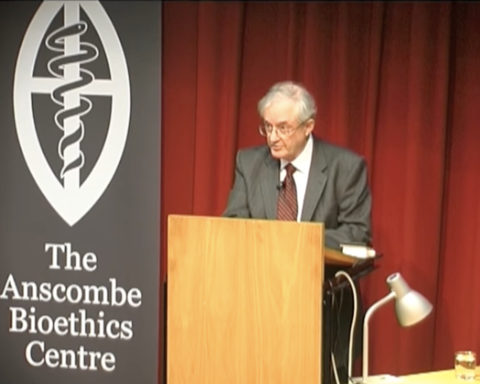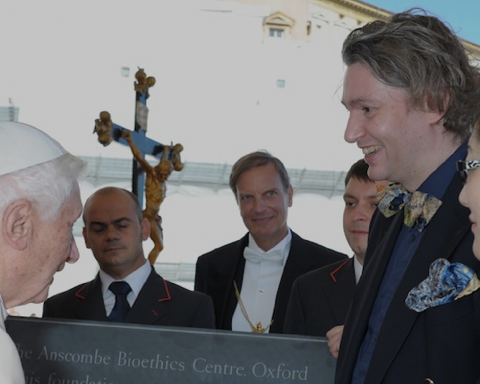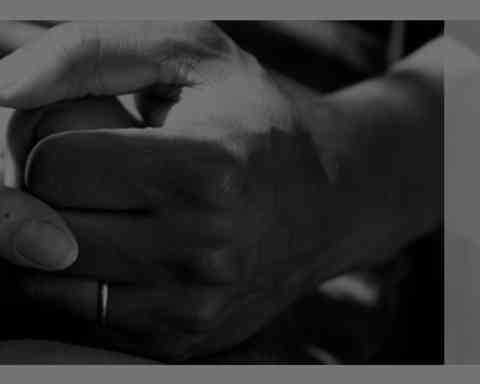Press Statement – “Very Likely”: Dead is not Dead Enough
Press Statement – “Very Likely”: Dead is not Dead EnoughThere has been another court case in which doctors have wanted to withdraw life sustaining treatment from a child over the objections of the parents. As with most cases of this kind, in the case of Archie Battersbee [1], the judge has sided with the doctors rather than with the parents and has ordered ventilation to be withdrawn. Decisions of this kind are strongly influenced by ethical, religious and cultural attitudes and, in the United Kingdom, these attitudes include a deference to the medical profession (“doctor knows best”), an understatement of the role and rights of parents, and a prejudice that unconscious and minimally conscious patients are incapable of deriving any benefit from life. The first prejudice would be questioned in the United States and the second and third would be questioned both in America and in continental Europe and the Middle East. The combination reflects a peculiarly British form of medical and judicial paternalism.
While these features are sadly familiar from cases such as that of Charlie Gard [2], Alfie Evans [3], Pippa Knight [4], and Alta Fixler [5], there are other elements of the present case that are novel. In this case, the doctors argued that Archie was in fact dead, and asked the court for permission to carry out the tests for “brain stem death” [6] to demonstrate this. If he were dead clearly then there would be no point in ventilating his body. Only as a secondary consideration did they argue that, if the tests showed he was still alive, then ventilation should be withdrawn on the basis of Archie’s best interests. The parents objected to the tests for “brain stem death” because of the risks involved.
The court-appointed guardian sided with the doctors and the judge’s order that doctors perform the standard tests for “brain stem death” as laid out in the Code of Practice. However, these tests could not be carried out because a preliminary test showed that there would be a danger of a false positive. The judge nevertheless decided, on the “balance of probabilities” [7], that it was more likely than not that Archie had died. Justice Arbuthnot also declared that, even if Archie were not dead, withdrawal of ventilation would be in his best interests because of the burdens of treatment [8]. This was despite a previous statement from Archie that, if he were unconscious he would want to be given life-sustaining treatment so as to remain with his mother.
There are several issues of concern in this judgement. In the first place it seems extraordinary that questions of life and death should be matters of a balance of probability rather than determination beyond reasonable doubt. No one would suggest burying someone who was “more likely than not” to be dead! “Very likely” dead is not dead enough. The judge in this case stated that “the law is settled” [9] and that the Court should decide on matters of fact in such cases based on the balance of probabilities. However, if this is the law, it is not so much settled as unsettling and in clear conflict with Catholic medical ethics. For example, the Catholic Church requires moral certainty of death – certainty beyond reasonable doubt – before unpaired vital organs can be taken from a body [10]. It should be noted that the concept of brain death was developed in the context of the practice of organ transplantation and the family of Archie Battersbee were upset that the doctors had started talking about organ donation within three days of his admission to hospital [11], long before the date that the judge subsequently gave as the date of Archie’s death.
A second reason that this decision is unsettling is that the tests for brain stem death, as set out in the Code of Practice [12], were never completed. Death had not been established by the standards of the Code. The judge based her decision not on best practice but on the opinion of doctors that it was “likely or very likely” [13] that Archie was dead. However, what is “very likely” is not certain, and one source of doubt is the fact that Archie’s heart continues to beat. According to the Code of Practice “There is evidence to show that for a patient with severe structural brain damage, if all the brain-stem death criteria are satisfied, asystole will inevitably follow within a few days despite continued ventilation” [14]. The Code quotes a study of over a thousand patients diagnosed with brain-stem death which gave the median time to asystole of 40 hours, with over three quarters losing heart function within 72 hours [15]. Archie has been on a ventilator for 57 days and, according to the judge, has been brain-stem dead for 14 days. Such an extended period of ventilation is compatible with a diagnosis of brain-stem death, but the Code notes that “evidence [that asystole will follow in a few days] was considered important in the development of the concept of brain-stem death in adults” [16]. Extended continuity of heartbeat is a reason for requiring that all tests for brain-stem death be completed before declaring the patient dead.
More concerning still is the fact that the judge regarded it as in the best interests of Archie to have ventilation withdrawn, even though he was not in pain and even though he had expressed a view that he would wish to receive life-sustaining treatment. The reason for overruling both the legal presumption in favour of sustaining life and his express wish was speculation as to “what Archie’s view might be of the treatment as it is being administered to him today” [17]. Now it is true that views stated in advance are not necessarily a good guide to the views of people who have become disabled through injury. However, research on people with locked in syndrome suggests that people often underestimate the degree to which they would want to live, and furthermore that doctors also tend to underestimate this. In one study, only 25% of Accident and Emergency doctors could envisage themselves living with quadriplegia; in contrast 90% of quadriplegics say they are happy to be alive [18]. The speculation that someone who expressed a prior wish to live would actually want to die is a projection of the doctors’ and the judge’s views without any basis in evidence. Like the RS case [19], it shows that doctors and judges do not take expressions of a wish to receive treatment and live with the same seriousness as they take expressions of a wish not to receive treatment. It was this double standard that led to Leslie Burke taking the GMC to court for its guidance on withholding and withdrawing treatment [20] and fifteen years later this double standard is still with us. Far from a strong presumption in favour of sustaining life there seems to be a strong presumption in favour of withdrawing life-sustaining treatment, even in the face of express previous wishes to the contrary. Regrettably it seems that only a formal statement or lasting power of attorney can now protect people against the tender mercies of doctors and the judiciary. This is a pressing need and one that the Anscombe Bioethics Centre plans to address in the coming months.
[1] Barts Health NHS Trust -v- Dance & Battersbee [2022] EWHC 1434 (Fam): https://www.judiciary.uk/judgments/barts-health-nhs-trust-v-dance-battersbee/
[2] Press Statement – Charlie Gard: Doing the Right Thing for the Right Reasons, Anscombe Bioethics Centre (7 July 2017): https://bioethics.org.uk/press-room/press-statements/press-statement-charlie-gard-doing-the-right-thing-for-the-right-reasons/
[3] Press Statement – Alfie Evans: A Brief Statement of the Fundamental Ethical Principles, Anscombe Bioethics Centre (2 February 2018): https://bioethics.org.uk/press-room/press-statements/press-statement-alfie-evans-a-brief-statement-of-the-fundamental-ethical-principles/
[4] Press Statement – Pippa Knight: The Benefit of Being Cared for Unawares, Anscombe Bioethics Centre (4 February 2021): https://bioethics.org.uk/press-room/press-statements/press-statement-pippa-knight-the-benefit-of-being-cared-for-unawares/
[5] Press Statement – Alta Fixler: Subsidiarity and the Importance of Circumstances, The Anscombe Bioethics Centre (4 August 2021): https://bioethics.org.uk/press-room/press-statements/statement-the-alta-fixsler-case-subsidiarity-and-the-importance-of-circumstances/
[6] Barts Health NHS Trust -v- Dance & Battersbee [2022] EWHC 1434 (Fam), para. 16.
[7] Ibid., para. 179.
[8] Ibid., para. 196.
[9] Ibid., para. 156.
[10] On the Ethics of Organ Transplantation: A Catholic Perspective. The Report of a Working Party’ (The Anscombe Bioethics Centre, 2014), 27 n.56: https://bioethics.org.uk/about-us/showcase/on-the-ethics-of-organ-transplantation-a-catholic-perspective/
[11] Op. cit., [2022] EWHC 1434 (Fam), para. 100.
[12] A Code of Practice for the Diagnosis and Confirmation of Death, Academy of Medical Royal Colleges (2008): https://aomrc.org.uk/wp-content/uploads/2016/04/Code_Practice_Confirmation_Diagnosis_Death_1008-4.pdf
[13] Op. cit., [2022] EWHC 1434 (Fam), para. 81.
[14] Op. cit., AOMRC (2008), p. 28.
[15] Bryan Jennett, John Gleave, and Peter Wilson, ‘Brain death in three neurosurgical units’, British Medical Journal 282 (14 February 1981): 533-539: https://www.ncbi.nlm.nih.gov/pmc/articles/PMC1504374/pdf/bmjcred00645-0029.pdf
[16]Op. cit., AOMRC (2008), p. 30.
[17] Op. cit., [2022] EWHC 1434 (Fam), para. 190.
[18] Basnett, I., 2001, ‘Health care professionals and their attitudes toward decisions affecting disabled people’, in G.L. Albrecht, K. Seelman and M. Bury (eds.), Handbook of Disability Studies Thousand Oaks, CA: Sage Publications, 450–467 see also K. Fitzpatrick and D.A. Jones, ‘A Life Worth Living? Disabled People and Euthanasia in Belgium’ in D.A. Jones, C. MacKellar and C Gastmans Assisted Suicide and Euthanasia: Lessons from Belgium Cambridge: Cambridge University Press, 2017, pp. 133-149.
[19] David Albert Jones, Depriving People of Food and Water Despite Their Previously Expressed Religious Beliefs, Anscombe Bioethics Centre Briefing Paper (12 January 2021): https://bioethics.org.uk/media/5mzkyxim/depriving-people-of-food-and-water-despite-their-previously-expressed-religious-beliefs.pdf
[20] Burke, R (on the application of) v General Medical Council & Ors [2005] EWCA Civ 1003: https://www.familylawweek.co.uk/site.aspx?i=ed409
Most recent
Anscombe Centre Tribute to John Finnis Upon His CBE Appointment
04 January 2023
The Anscombe Bioethics Centre pays tribute to John Finnis, Professor of Law and Legal Philosophy Eme...
The Anscombe Centre Honours the Memory of the Late Pope Benedict XVI (1927-2022)
03 January 2023
The Anscombe Bioethics Centre would like to honour the memory of the late Pope Benedict XVI. His wit...
Anscombe Centre Statement on Commons HSC Committee Inquiry into Assisted Suicide
15 December 2022
The Anscombe Bioethics Centre comments on the new Inquiry launched by the House of Commons Health an...
Support Us
The Anscombe Bioethics Centre is supported by the Catholic Church in England and Wales, Scotland, and Ireland, but has also always relied on donations from generous individuals, friends and benefactors.



